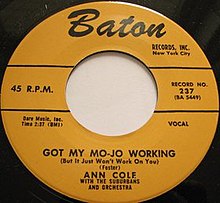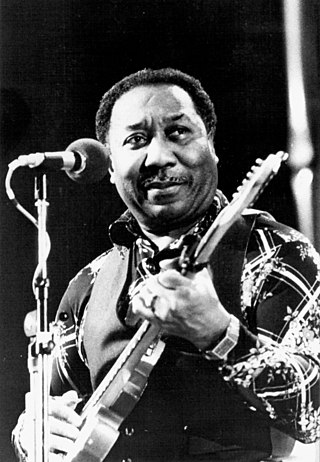
McKinley Morganfield, known professionally as Muddy Waters was an American blues singer, songwriter and musician who was an important figure in the post-World War II blues scene, and is often cited as the "father of modern Chicago blues". His style of playing has been described as "raining down Delta beatitude".

Muddy Waters (1913–1983) was an American blues artist who is considered a pioneer of the electric Chicago blues and a major influence on the development of blues and rock music. He popularized several early Delta blues songs, such as "Rollin' and Tumblin'", "Walkin' Blues", and "Baby, Please Don't Go", and recorded songs that went on to become blues standards, including "Hoochie Coochie Man", "Mannish Boy", and "Got My Mojo Working". During his recording career from 1941 to 1981, he recorded primarily for two record companies, Aristocrat/Chess and Blue Sky; they issued 62 singles and 13 studio albums.

Otis Spann was an American blues musician, whom many consider to be the leading postwar Chicago blues pianist.
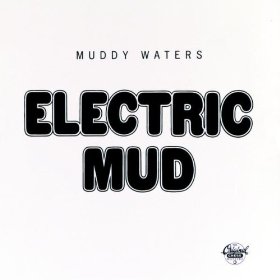
Electric Mud is the fifth studio album by Muddy Waters, with members of Rotary Connection playing as his backing band. Released in 1968, it presents Muddy Waters as a psychedelic musician. Producer Marshall Chess suggested that Muddy Waters record it in an attempt to appeal to a rock audience.
Baton Records was an American, New York City based independent record label, launched in 1954 by record producer Sol Rabinowitz, mainly to record and release rhythm and blues music.

Ann Cole was an American R&B and gospel singer who has been described as "a genuinely great soul singer who had the misfortune to be too far ahead of her time". She had several minor hits in the late 1950s and early 1960s, but is now most noted as the original performer of "Got My Mojo Working", later popularised by Muddy Waters.

At Newport 1960 is a live album by Muddy Waters recorded during his performance at the Newport Jazz Festival on July 3, 1960. With his longtime backup band, Muddy Waters plays a mix of his older popular tunes and some newer compositions. Chess Records released the album in the United States on November 15, 1960.
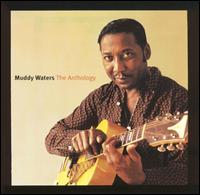
The Anthology: 1947–1972 is a double compilation album by Chicago blues singer and guitarist Muddy Waters. It contains many of his best-known songs, including his R&B single chart hits "I'm Your Hoochie Coochie Man", "Just Make Love to Me ", and "I'm Ready". Chess and MCA Records released the set on August 28, 2001.

William "Big Bill" Morganfield is an American blues singer and guitarist. He is the son of McKinley Morganfield, also known as Muddy Waters, and the half-brother of Mud Morganfield.
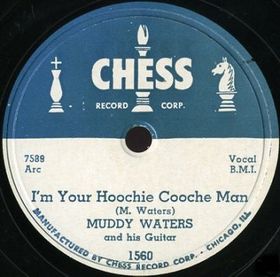
"Hoochie Coochie Man" is a blues standard written by Willie Dixon and first recorded by Muddy Waters in 1954. The song makes reference to hoodoo folk magic elements and makes novel use of a stop-time musical arrangement. It became one of Waters' most popular and identifiable songs and helped secure Dixon's role as Chess Records' chief songwriter.

Muddy "Mississippi" Waters – Live is a live album by Muddy Waters, released in January 1979. It was recorded during the 1977–78 tour to support Muddy Waters' album Hard Again (1977) and features the same musicians, including James Cotton and Johnny Winter, who had produced the album.

The Best of Muddy Waters is a greatest hits album by Muddy Waters released by Chess Records in April 1958. The twelve songs were originally issued as singles between 1948 and 1954 and most appeared in Billboard magazine's top 10 Rhythm & Blues Records charts.
Otis "Big Smokey" Smothers was a Chicago blues guitarist and singer. He was a member of Howlin' Wolf's backing band and worked with Muddy Waters, Jimmy Rogers, Bo Diddley, Ike Turner, J. T. Brown, Freddie King, Little Johnny Jones, Little Walter, and Willie Dixon. His younger brother, Abe, was the bluesman Little Smokey Smothers, with whom he is sometimes confused.

Fathers and Sons is the seventh studio album by the American blues musician Muddy Waters, released as a double LP by Chess Records in August 1969.

Breakin' It Up, Breakin' It Down is a blues album by Muddy Waters, Johnny Winter, and James Cotton. It was recorded live in 1977, and released in 2007. It reached number 3 on the Billboard Blues Albums chart.

The Muddy Waters Woodstock Album is an album by blues musician Muddy Waters released by the Chess label in 1975. The album features Levon Helm and Garth Hudson from The Band and Paul Butterfield.
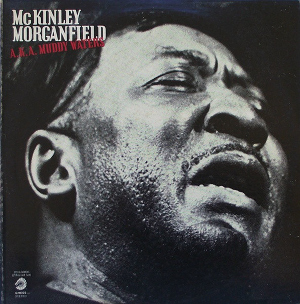
McKinley Morganfield A.K.A. Muddy Waters is a compilation album by blues musician Muddy Waters featuring tracks recorded between 1948 and 1953 released by the Chess label in 1971.
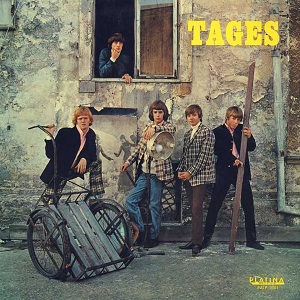
Tages is the debut studio album by the Swedish rock band Tages, released on 3 November 1965 on Platina Records. Released during a period in which the band had accumulated four top ten singles in Tio i Topp and as many on Kvällstoppen. This led the band to become one of Sweden's first and foremost pop groups, along with Hep Stars.

Max Voorhees Drake II is an American blues guitarist and songwriter from Yanceyville, North Carolina. He has performed with musicians such as B.B. King, Bo Diddley, Chuck Berry, Lightnin' Hopkins, and Nappy Brown.
Little Walter (1930–1968) was an American blues artist who is generally regarded as the most influential blues harmonica player of his era. Most of his earliest recordings were as a sideman, when he contributed harmonica to songs by Chicago blues musicians such as Jimmy Rogers and Muddy Waters. As the featured artist, he recorded the instrumental "Juke" in 1952. The single reached number one on the Billboard Rhythm and Blues chart and launched his career as a solo artist.
